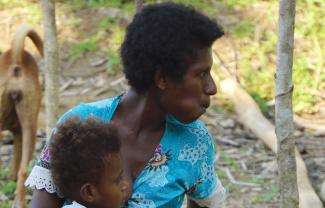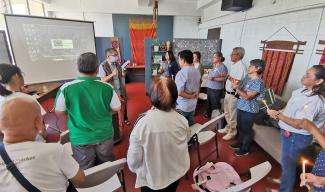In August 2018, a first Gender Responsive Activities Planning Workshop was conducted for a group of Partners. It was attended by 15 women and 4 men with varied experiences and knowledge on gender equity. This was followed by an assessment of livelihoods and landscapes using the Gender Equity and Social Inclusion (GESI)10 perspective.
The process was replicated in several locations where Samdhana has partners, Papua, West Papua, NTT and West Kalimantan. The assessment involved women champions and individuals who understand GESI problems specific to their local context.
The assessment using GESI perspective is a process that reveals the way that men, women and marginalized groups attach meaning to livelihoods and landscapes. It aims to understand the various components and processes, and the roles they play at the individual, core family, extended family, or community level. The assessment framework is a seven-stage analysis, which looks at the landscape, livelihood resources and strategies and social relations to institutions and organizations. It also considers the context, trends and policies, impact of activities within the landscape and livelihood arrangement strategies and sustainable analysis.
The training enabled the participants to use the tool for their own planning, and the outcome of the regional assessments will be used to produce a Guide to Landscape and Livelihood Management using a GESI Perspective. Eventually, the guidance will be developed into a training module for CSOs working on gender and social development. As a result of the success of the approach, Samdhana aims to adopt the GESI as a framework of analysis and implementation to help mainstream gender equity and social inclusion in its programs and projects.
This story was first published on "The Samdhana Institute Annual Report 2018" by The Samdhana Institute. Click here for more stories.




